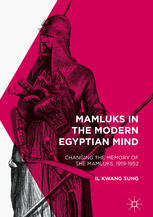

Most ebook files are in PDF format, so you can easily read them using various software such as Foxit Reader or directly on the Google Chrome browser.
Some ebook files are released by publishers in other formats such as .awz, .mobi, .epub, .fb2, etc. You may need to install specific software to read these formats on mobile/PC, such as Calibre.
Please read the tutorial at this link. https://ebooknice.com/page/post?id=faq
We offer FREE conversion to the popular formats you request; however, this may take some time. Therefore, right after payment, please email us, and we will try to provide the service as quickly as possible.
For some exceptional file formats or broken links (if any), please refrain from opening any disputes. Instead, email us first, and we will try to assist within a maximum of 6 hours.
EbookNice Team

Status:
Available5.0
8 reviewsThis book explores how modern Egyptians understand the Mamluks and reveals the ways in which that historical memory is utilized for political and ideological purposes. It specifically examines the representations of the Mamluks from two historical periods: the Mamluk Sultanate era (1250–1517) and the Mamluks under the Ottoman era (1517–1811) focusing mostly on the years 1760–1811. Although the Mamluks have had a great impact on the Egyptian collective memory and modern thought, the subject to date has hardly been researched seriously, with most analyses given to stereotypical negative representations of the Mamluks in historical works. However, many Egyptian historians and intellectuals presented the Mamluk era positively, and even symbolized the Sultans as national icons. This book sheds light on the heretofore-neglected positive dimensions of the multifaceted representations of the Mamluks and addresses the ways in which modern Egyptians utilize that collective memory.